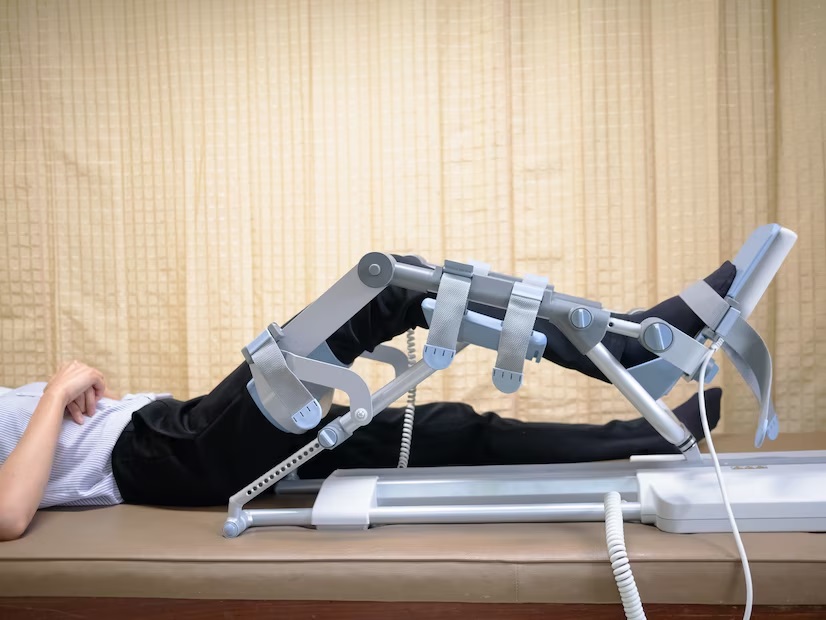Knee replacement surgery, a transformative medical procedure, emerges as a beacon of hope for individuals grappling with debilitating knee conditions such as osteoarthritis or traumatic injuries. This surgical intervention becomes a viable option when conventional treatments fall short in providing relief and restoring optimal joint replacement surgeons in Thane. The complexity of the procedure, the diverse types of knee replacements available, and the potential risks associated with this surgery underscore the significance of comprehensive knowledge for both patients and caregivers. Navigating through the nuances of knee replacement surgery is pivotal for making informed decisions and embarking on a journey towards renewed mobility and improved quality of life.
Knee replacement surgery, also known as knee arthroplasty, is a medical procedure designed to relieve pain and restore function in severely damaged knee joint replacement surgeons in Thane. This surgical intervention becomes necessary when conservative treatments fail to provide relief for conditions like osteoarthritis, rheumatoid arthritis, or traumatic injuries. Understanding the procedure, the different types of knee replacements, and the associated risks is crucial for individuals considering or undergoing this transformative surgery.
Procedure:
Knee replacement surgery is a meticulous process carried out by orthopedic surgeons with precision and care. The following steps are typically included in the procedure:
- Preparation: The patient is administered anesthesia, typically spinal or epidural, to ensure a pain-free experience during the surgery.
- Incision: A surgical incision is made over the knee to expose the damaged joint.
- Reshaping the Bones: The damaged ends of the thigh bone (femur) and shin bone (tibia) are carefully removed and reshaped to accommodate the artificial best joint replacement surgeon in Thane components.
- Implant Placement: The artificial joint, consisting of metal and high-grade plastic components, is securely implanted into the prepared bone surfaces. The patella, or kneecap, may also be resurfaced in specific circumstances.
- Closure: The incision is closed, and the surgeon ensures proper alignment and functionality of the artificial joint.
Types of Knee Replacement:

There are several types of knee replacement surgeries, each catering to specific conditions and patient needs:
- Total Knee Replacement (TKR): This involves replacing both the femoral and tibial joint surfaces with prosthetic components.
- Partial Knee Replacement (PKR): Only a portion of the best joint replacement surgeon in Thane is replaced, suitable for cases where damage is limited to one compartment of the knee.
- Revision Knee Replacement: This is performed when a previous knee replacement has failed, and corrective measures are needed.
- Bilateral Knee Replacement: Both knees are replaced either simultaneously or in separate surgeries.
Risks:
While knee replacement surgery is generally safe and well-tolerated, like any medical procedure, it comes with potential risks. These may include:
- Infection: There’s a risk of infection at the surgical site or within the artificial joint replacement surgeon in Thane.
- Blood Clots: Formation of blood clots in the legs, which can be a serious complication.
- Implant Issues: Prosthetic components may wear down over time, leading to the need for revision surgery.
- Stiffness or Instability: Some patients may experience stiffness or instability in the knee.
Knee replacement surgery is a transformative intervention that has provided countless individuals with relief from debilitating knee pain. Understanding the intricacies of the procedure, the various types of knee replacements, and the associated risks is crucial for informed decision-making. While risks exist, advancements in medical technology and surgical techniques continue to enhance the safety and efficacy of knee replacement surgeries, offering renewed hope for improved mobility and an enhanced quality of life for those in need. If considering this procedure, individuals are advised to consult with their healthcare providers to explore the most suitable options based on their unique medical conditions and lifestyle.
Conclusion:
In the realm of orthopedic advancements, knee replacement surgery stands as a testament to medical ingenuity, offering a lifeline to those burdened by persistent knee pain. As we dissected the procedural intricacies, explored the different types of knee replacements, and delved into potential risks, it became evident that informed decision-making is paramount in this transformative process. While risks are inherent in any surgical endeavor, the continuous evolution of medical techniques assures enhanced safety and efficacy. For individuals considering or undergoing knee replacement surgery, this knowledge serves as a compass, guiding them towards the path of optimal joint replacement surgeon in Thane health and a future marked by increased mobility and restored vitality.
FAQs
Which kinds of knee replacement surgeries are available?
Total knee replacement (TKR), partial knee replacement (PKR), and complex or revision knee replacement are the main types. Each addresses specific conditions, with TKR involving the replacement of the entire knee joint and PKR focusing on only the damaged portion.
How long does the recovery process take?
Recovery periods vary but generally include a hospital stay of a few days, followed by weeks of physical therapy. Full recovery may take several months, depending on individual health and the type of surgery.
What risks are associated with knee replacement surgery?
Risks include infection, blood clots, nerve or blood vessel damage, and adverse reactions to anesthesia. It is imperative that you and your surgeon go over these risks prior to the procedure.
Are there age restrictions for knee replacement surgery?
While age alone is not a determining factor, overall health and the ability to withstand surgery and rehabilitation are more critical considerations. Many people undergo successful knee replacement surgery in their 60s, 70s, and beyond.
Can both knees be replaced simultaneously?
In some cases, both knees can be replaced during the same surgery (bilateral knee replacement). However, this decision depends on various factors, including the patient’s overall health and the surgeon’s recommendation.
What postoperative care is necessary?
Post-surgery care involves physical therapy, pain management, and adherence to the prescribed exercise regimen. Following the surgeon’s instructions for wound care and attending follow-up appointments are crucial for a smooth recovery.










